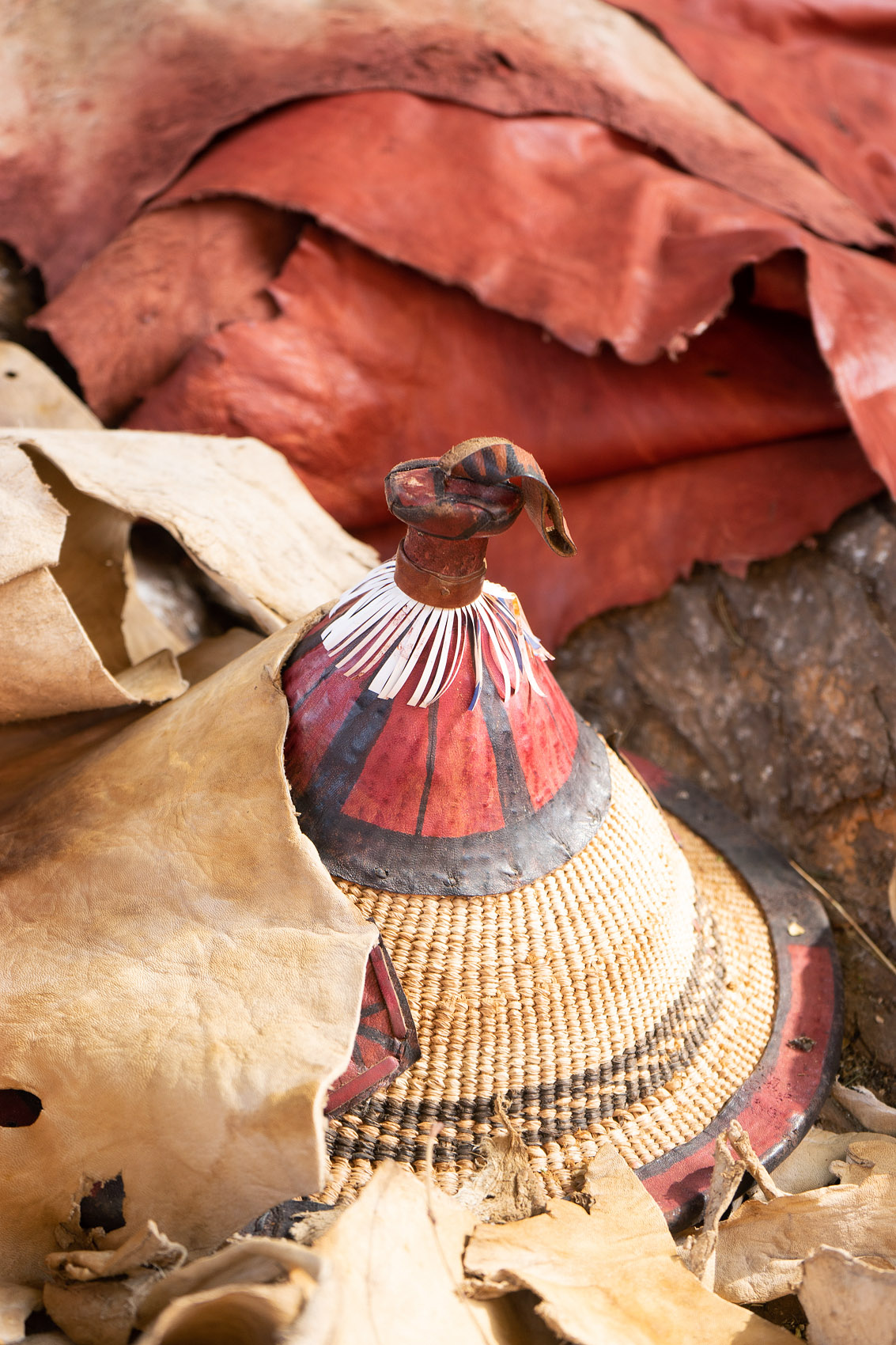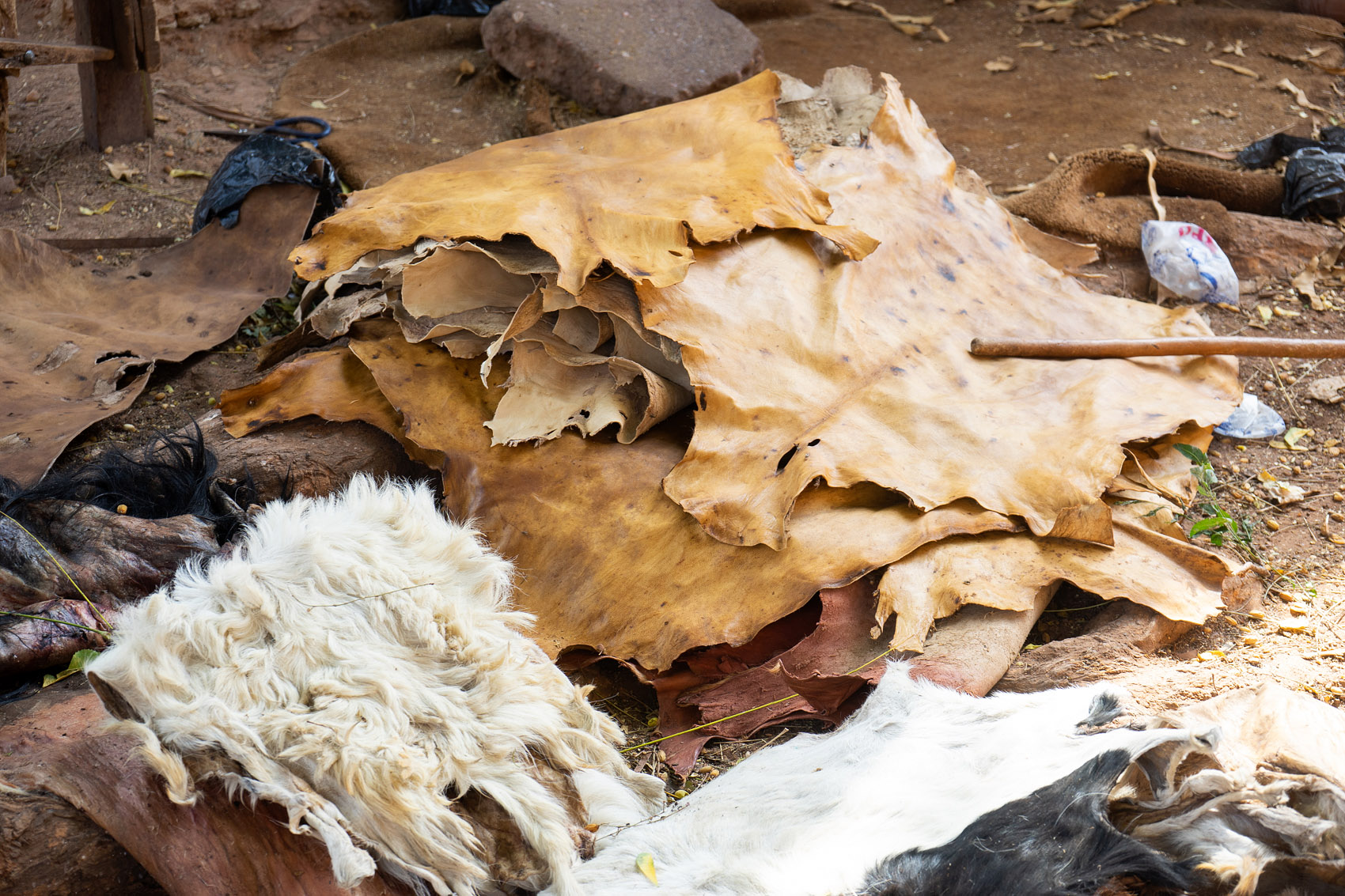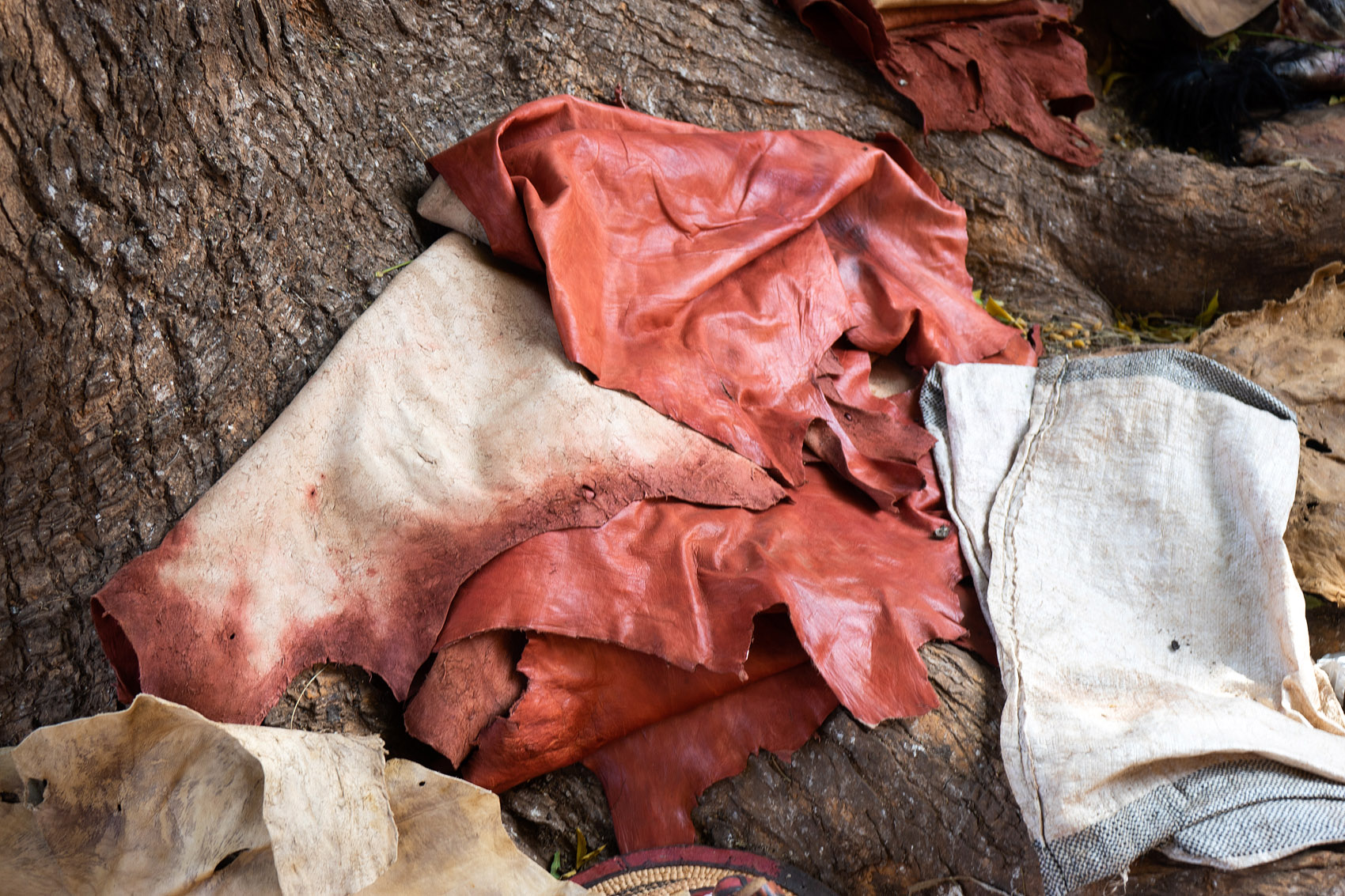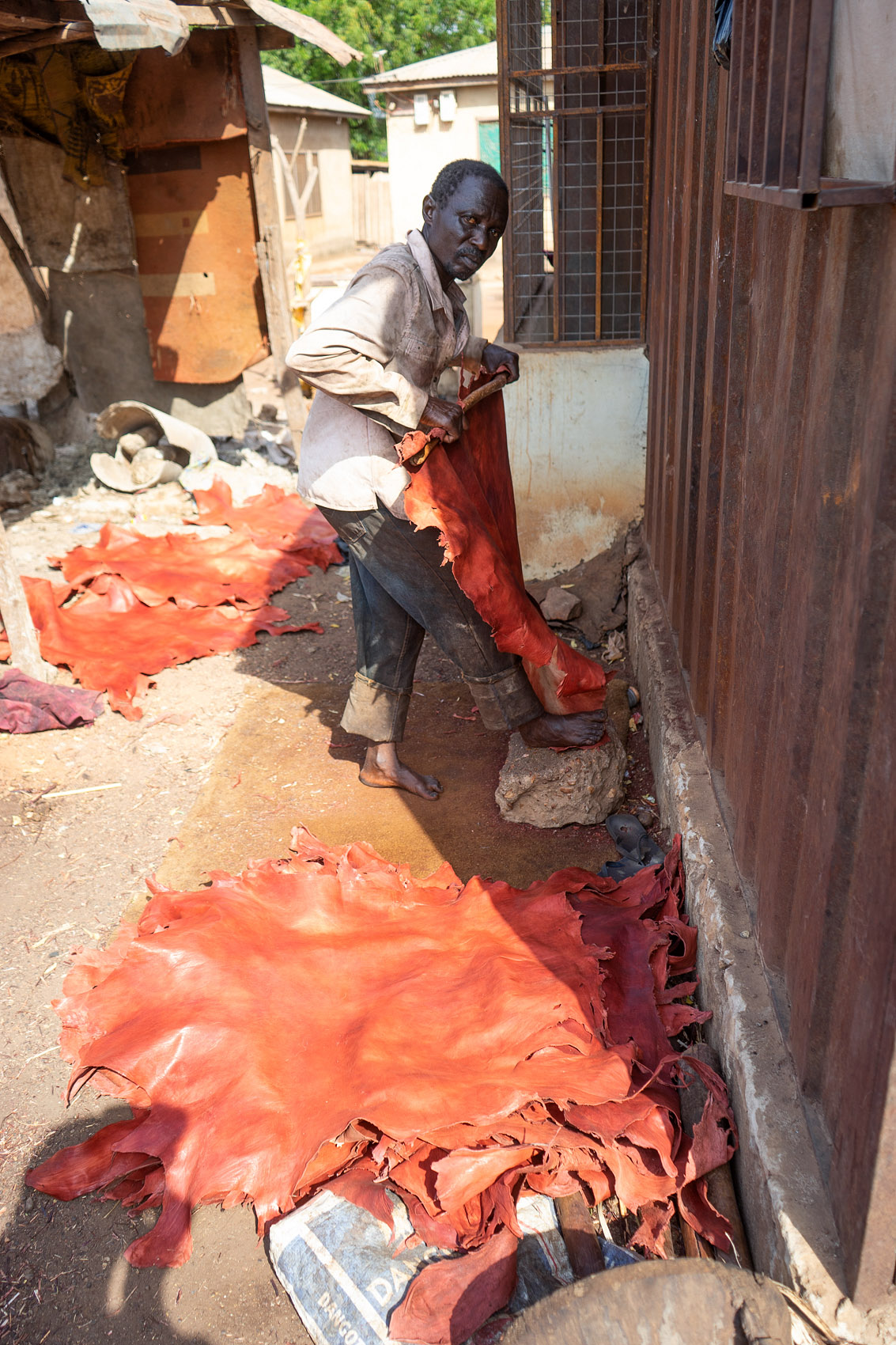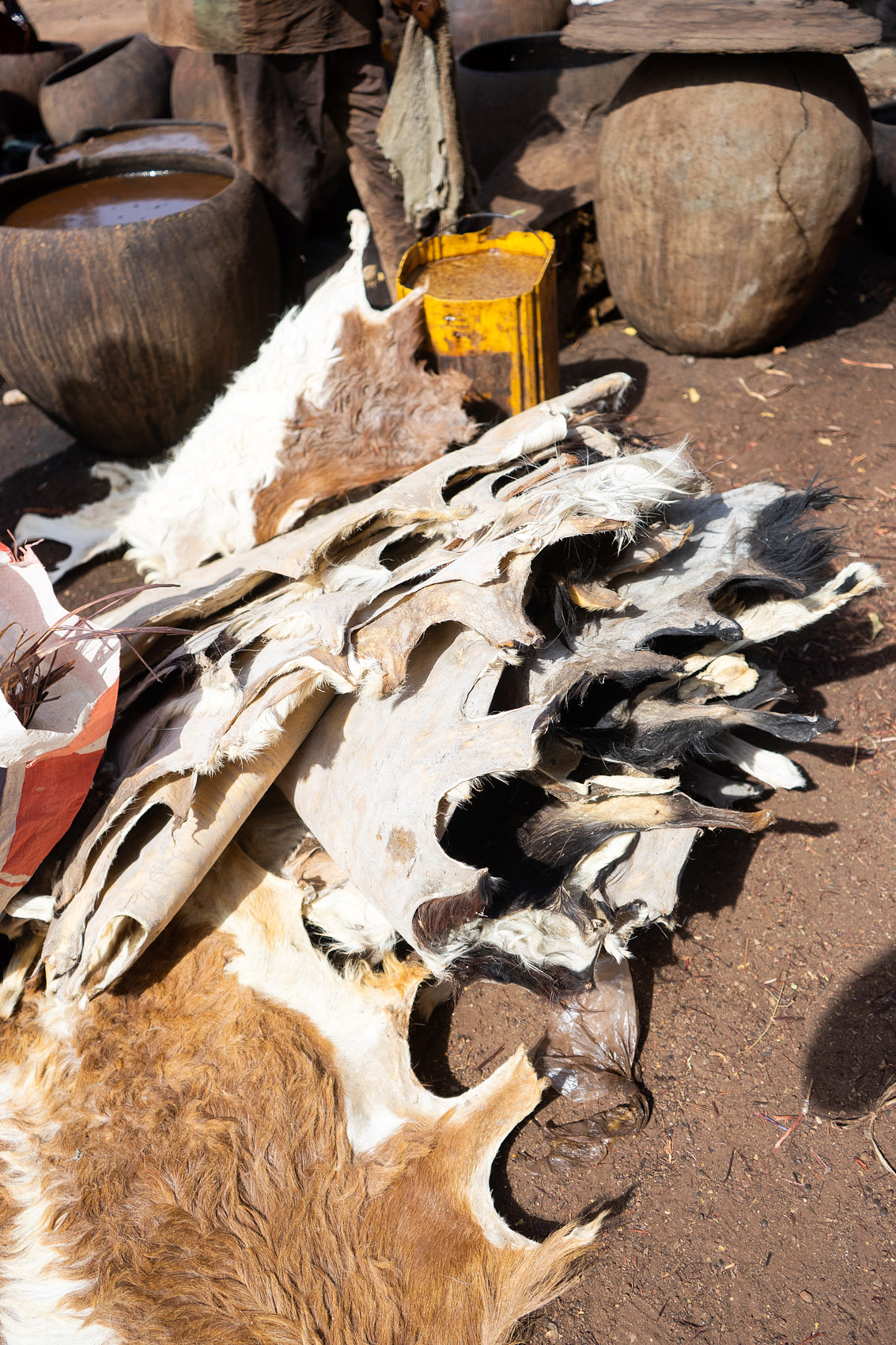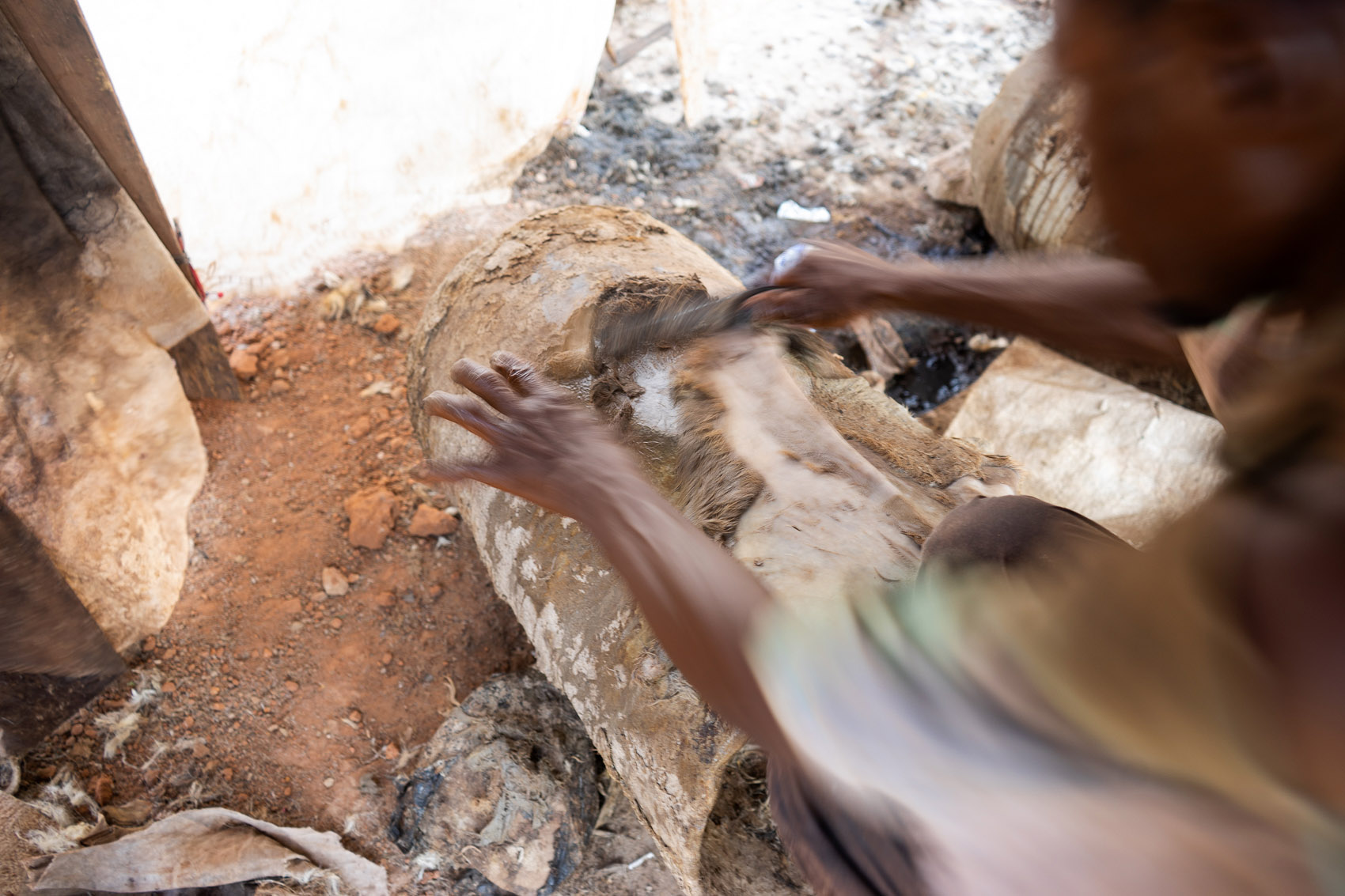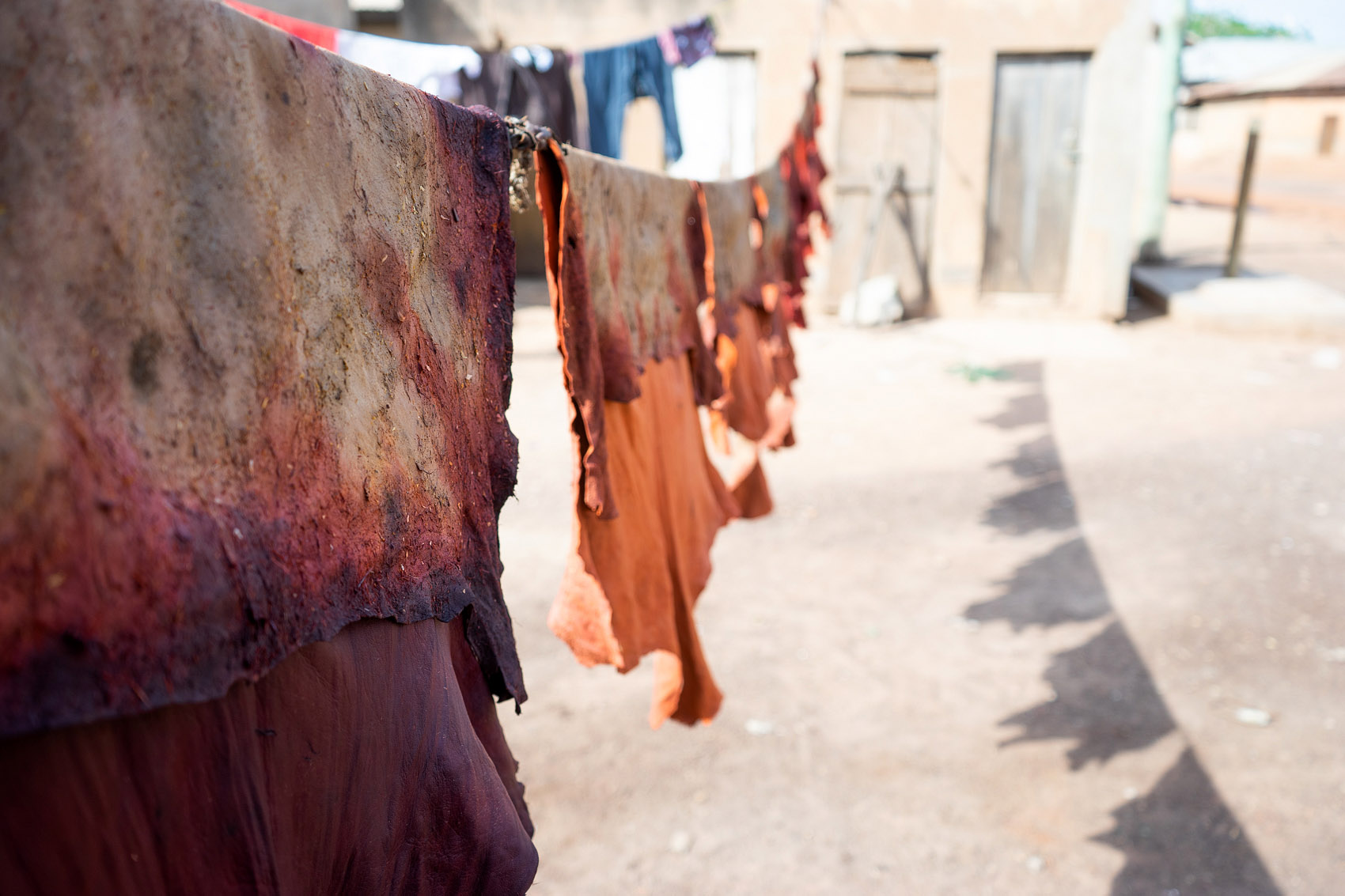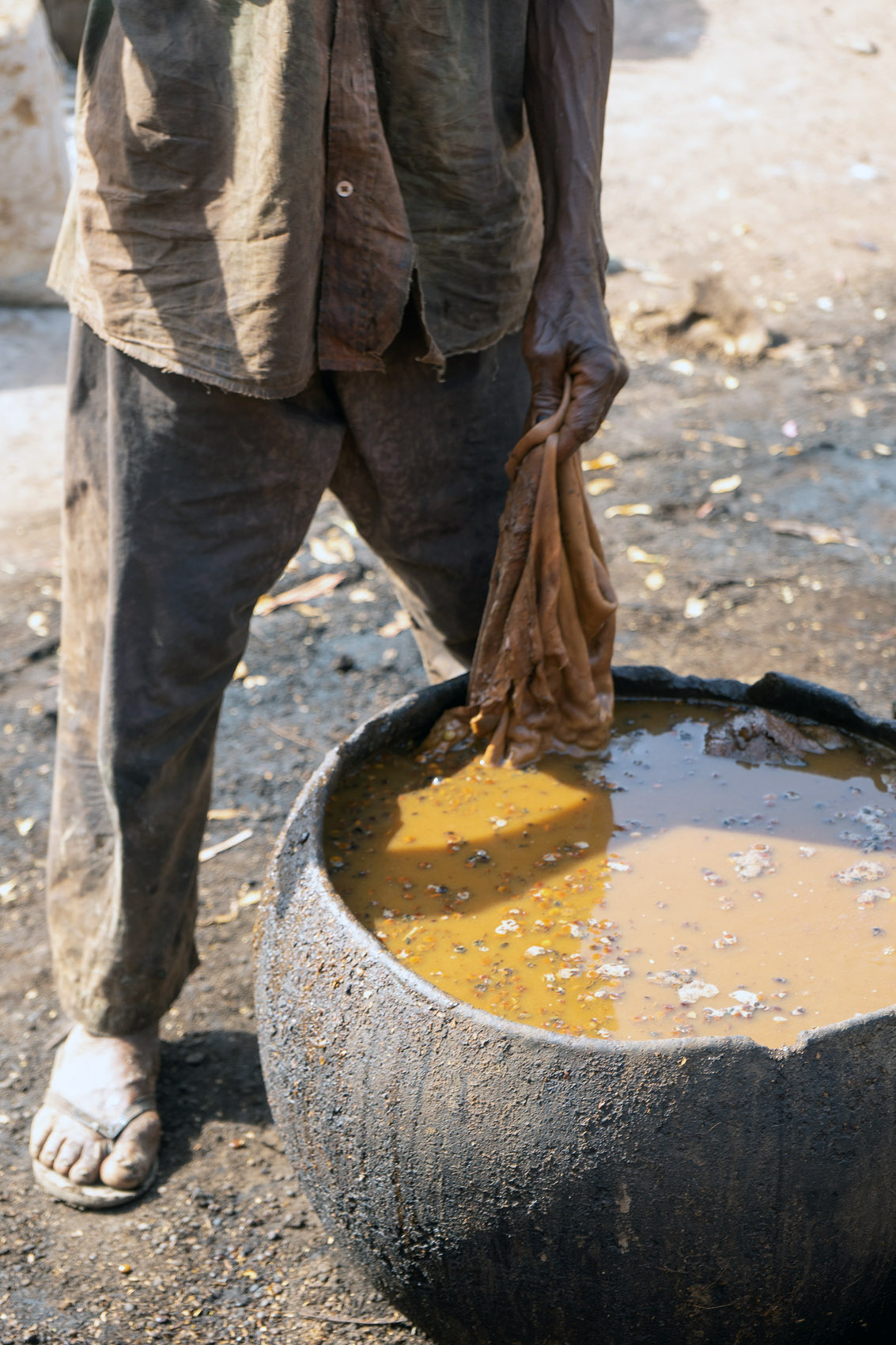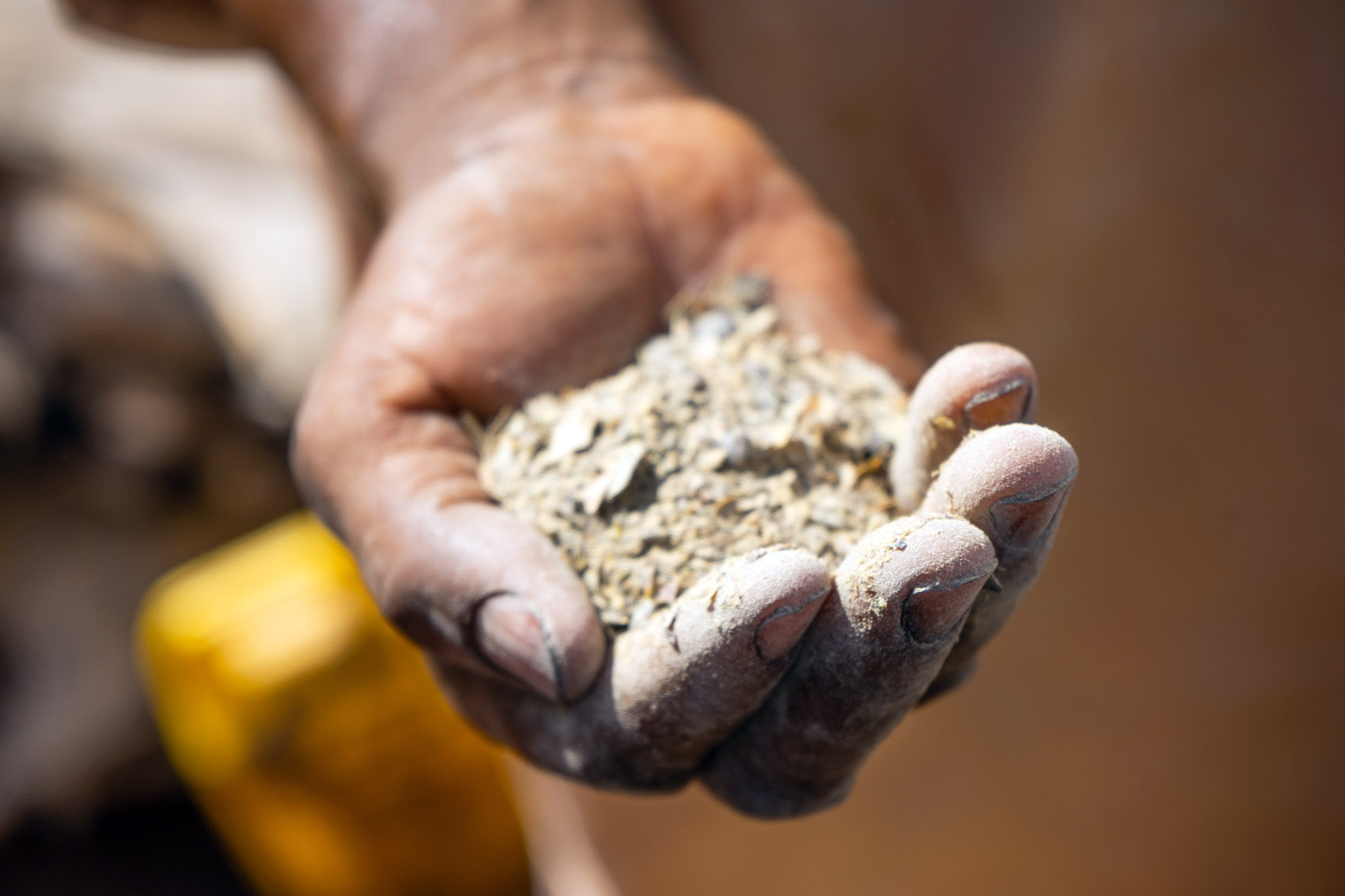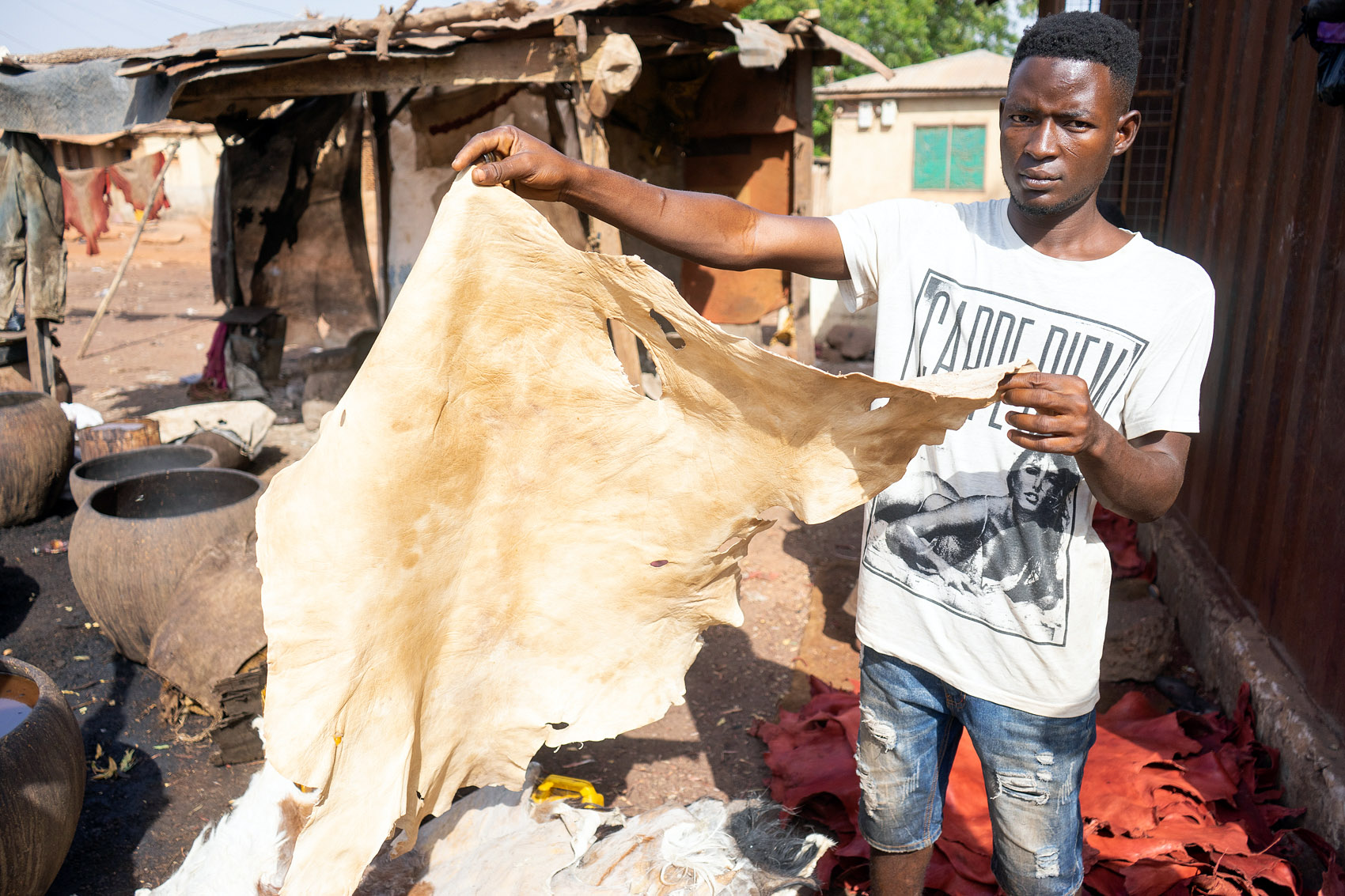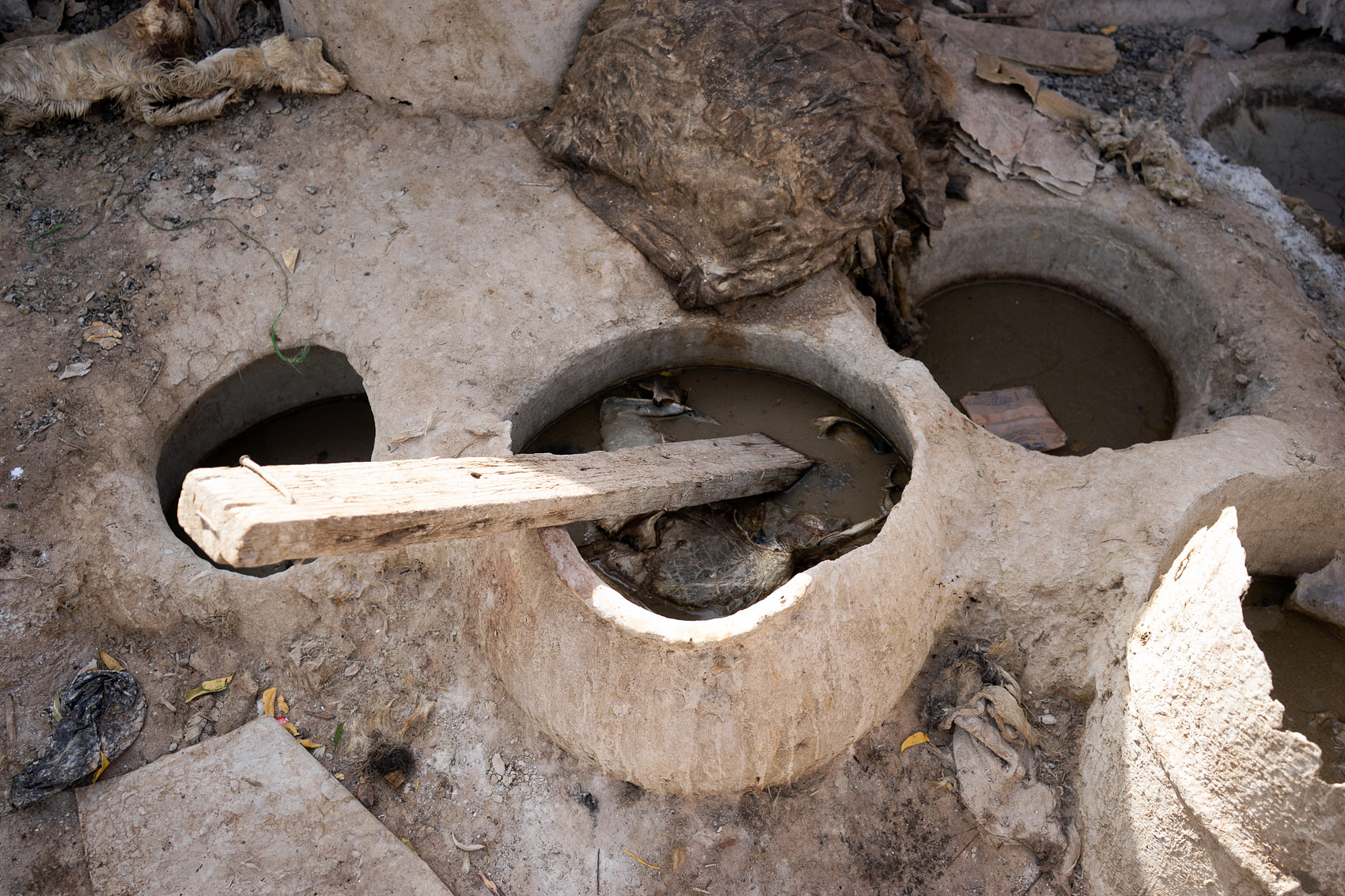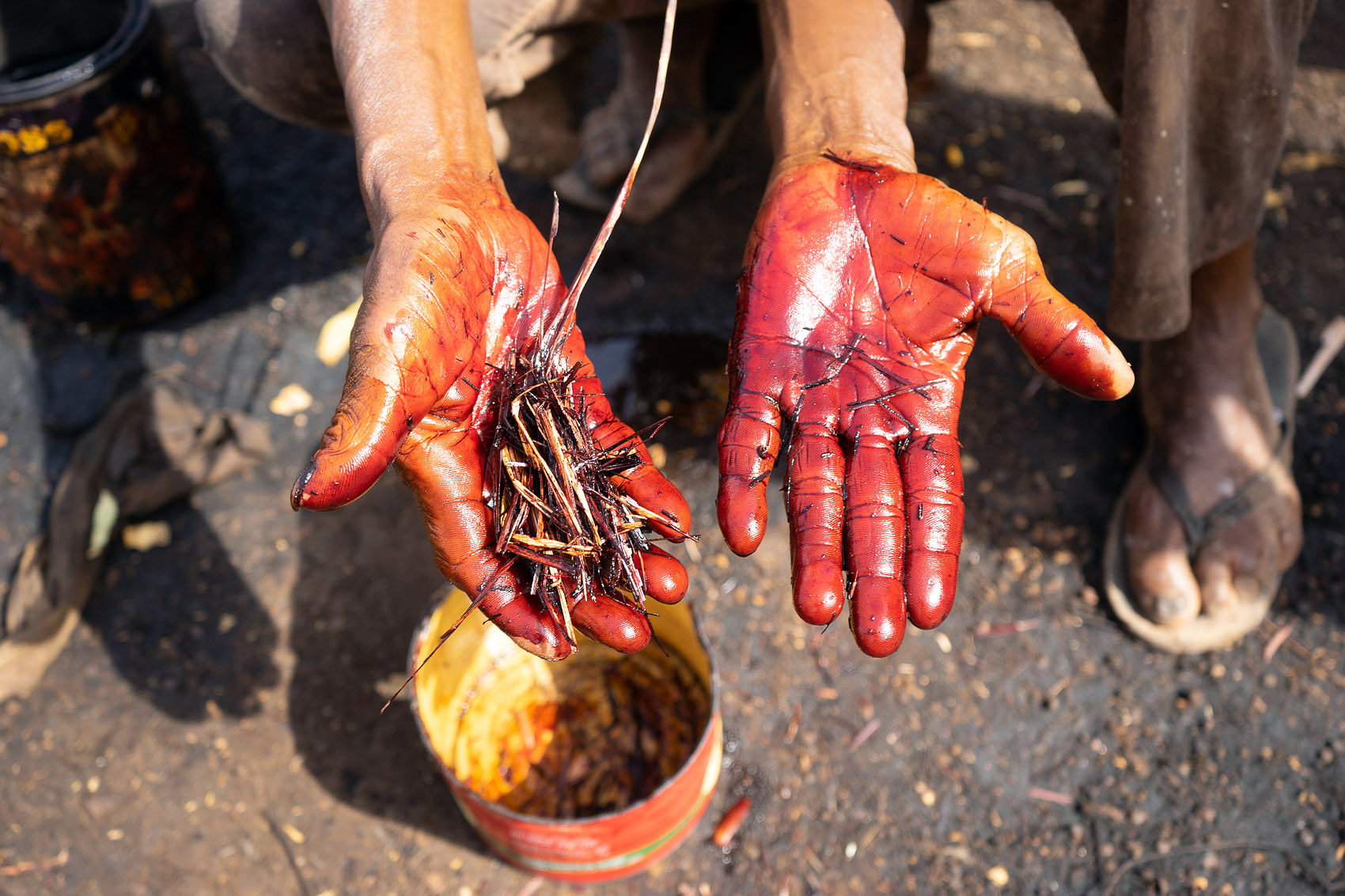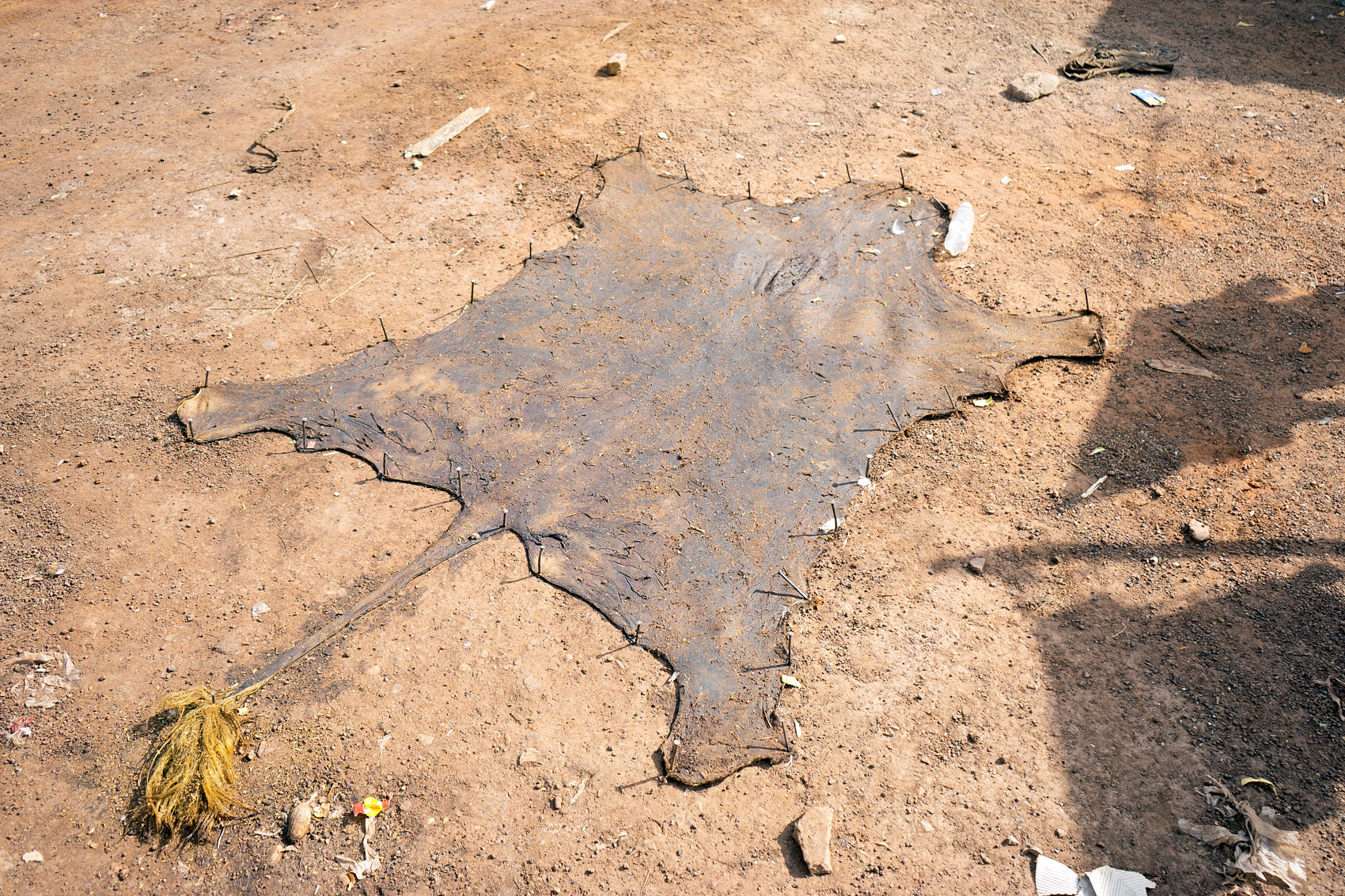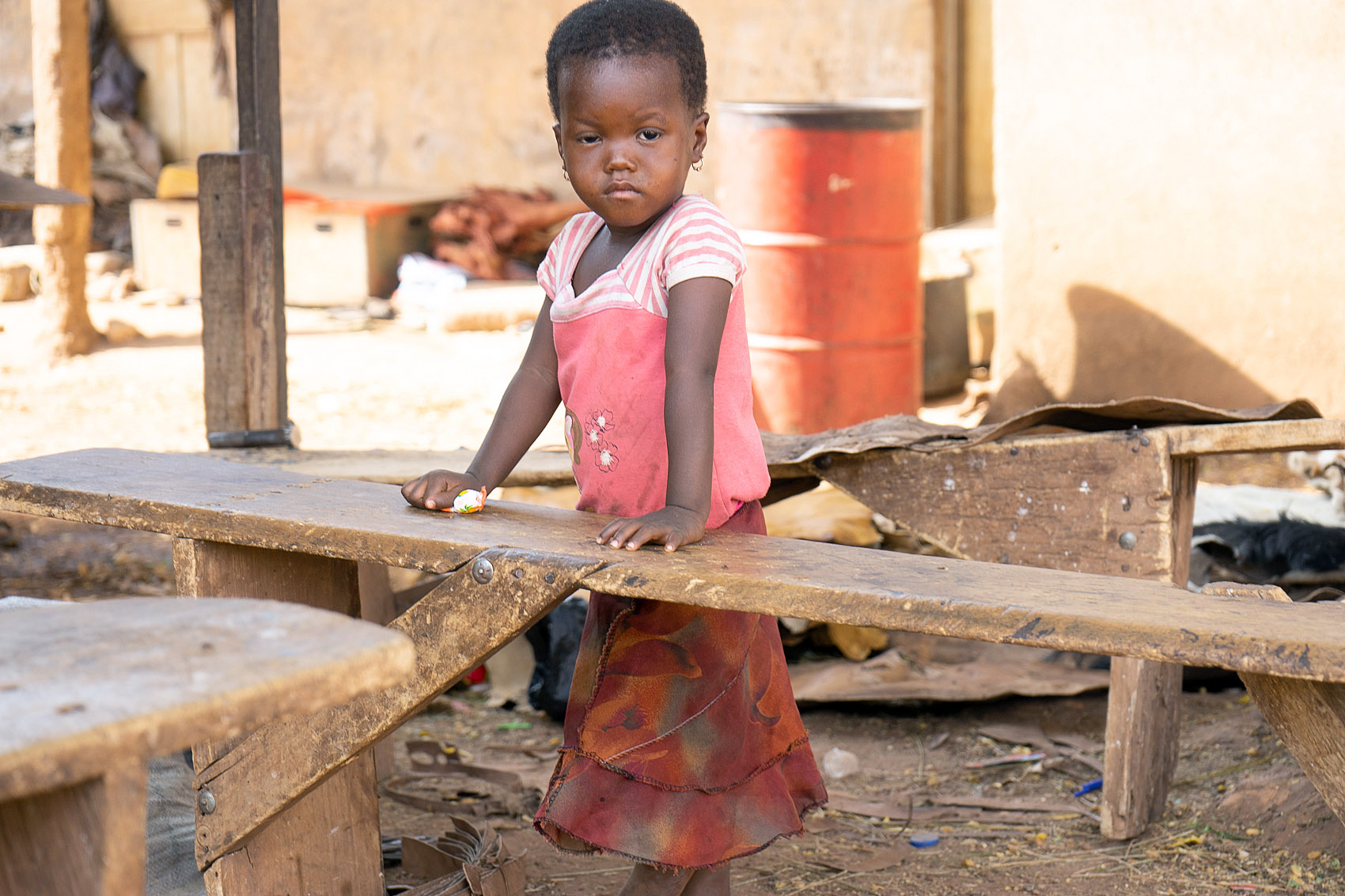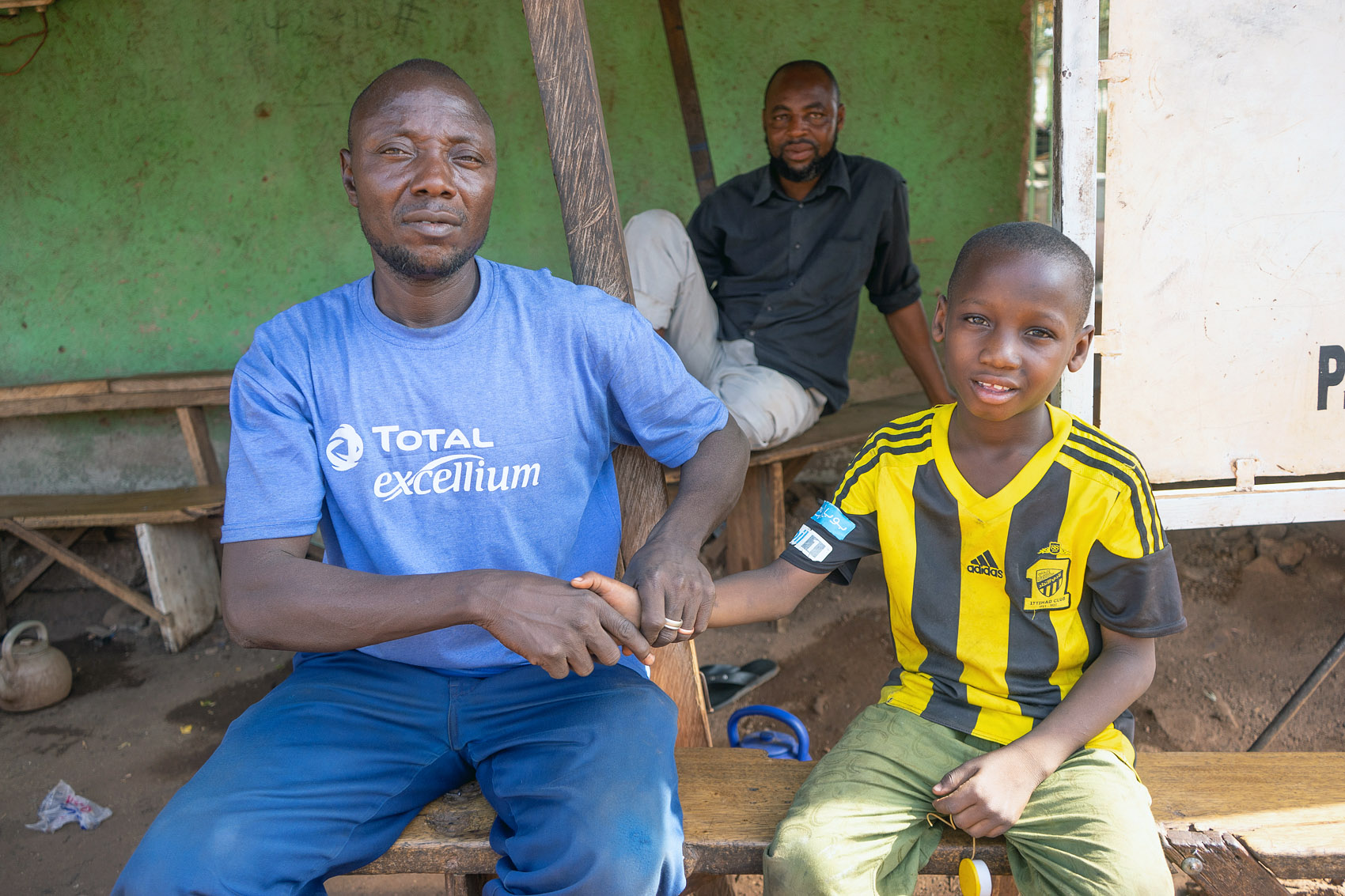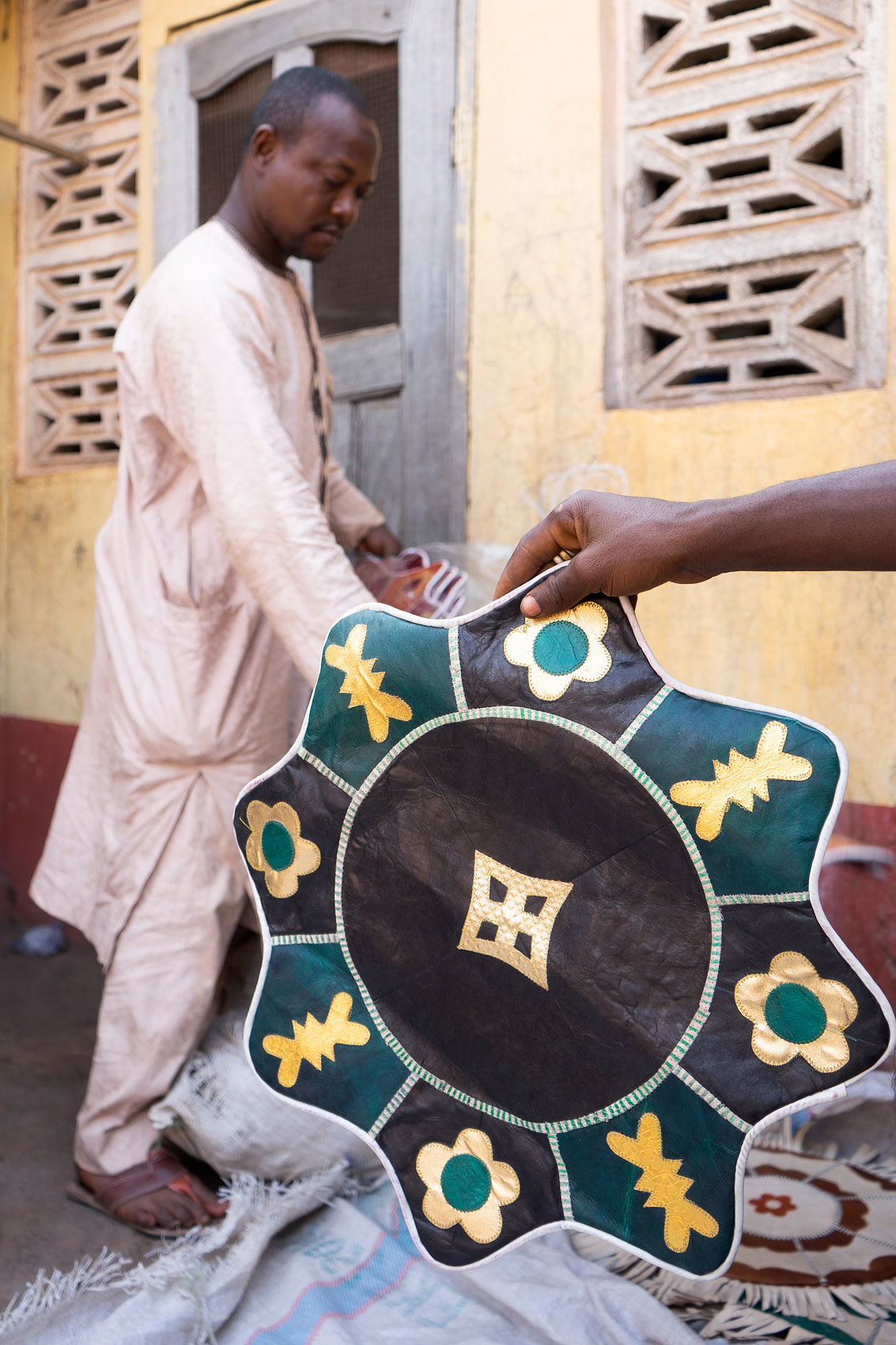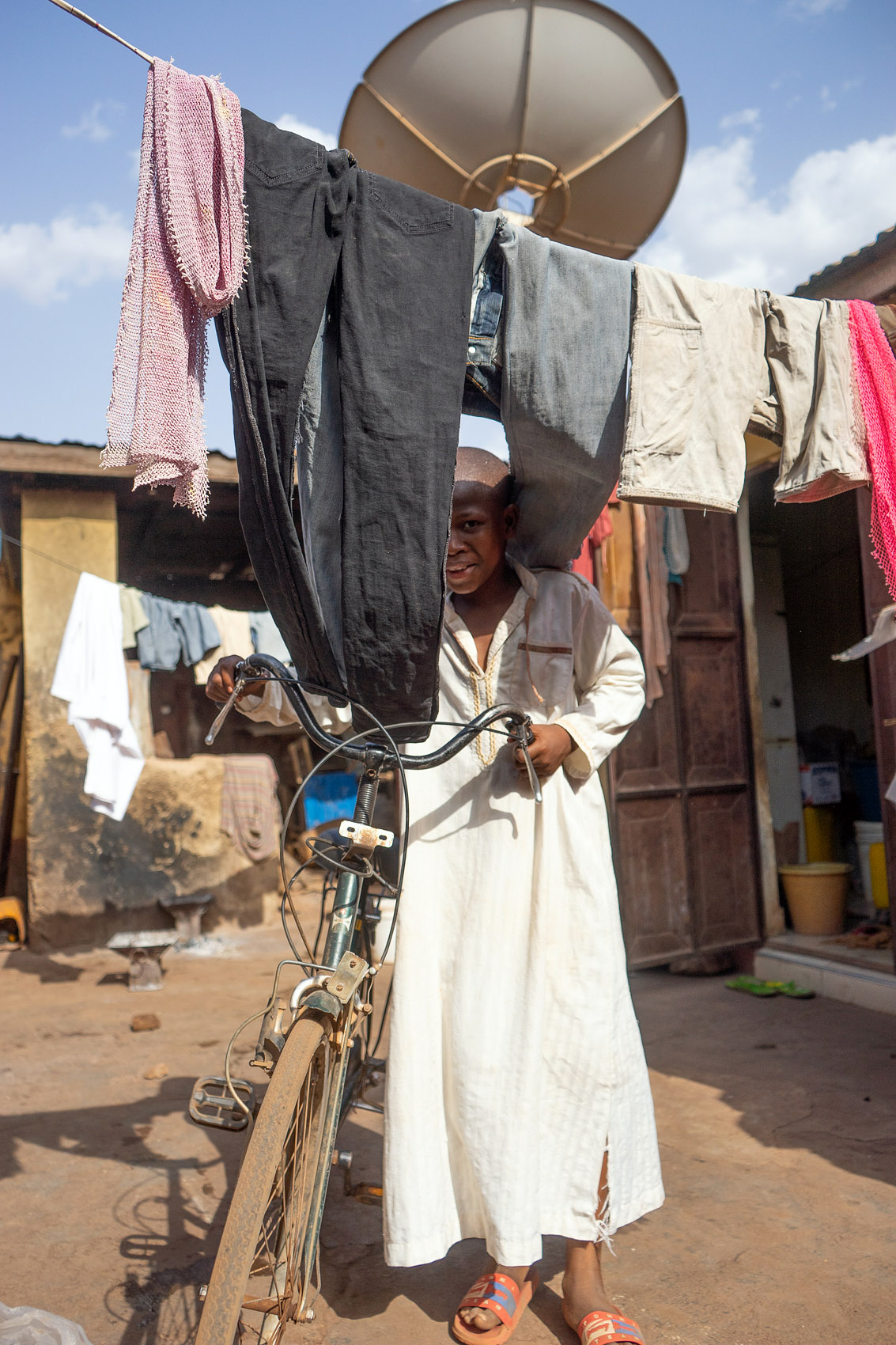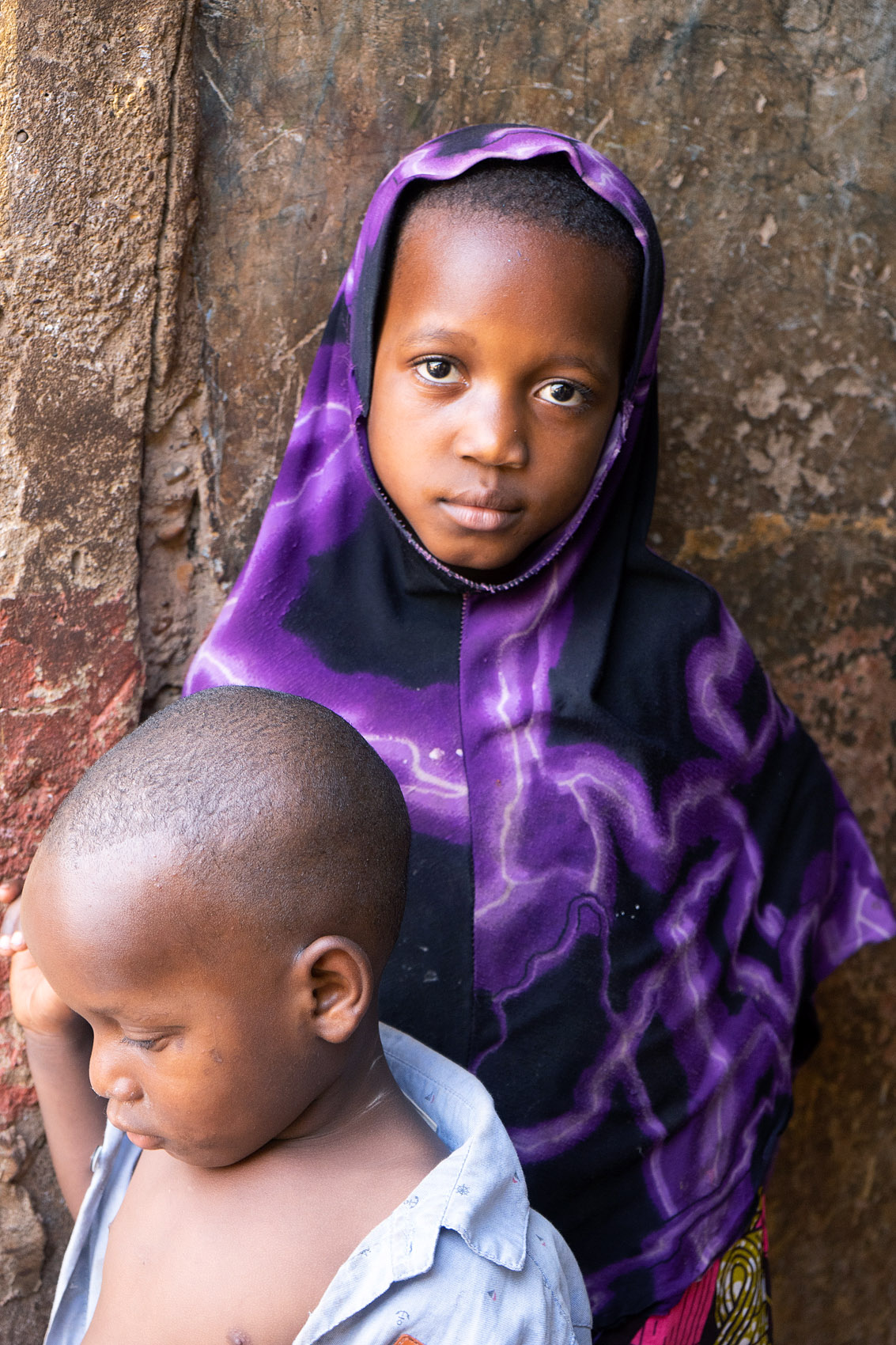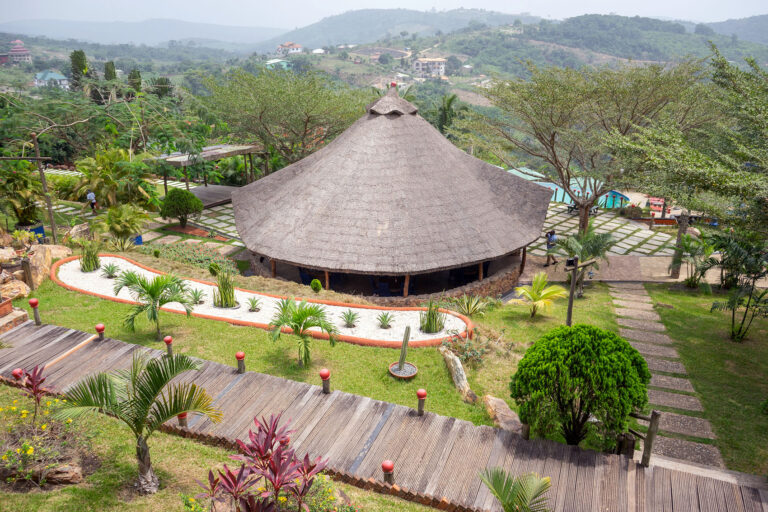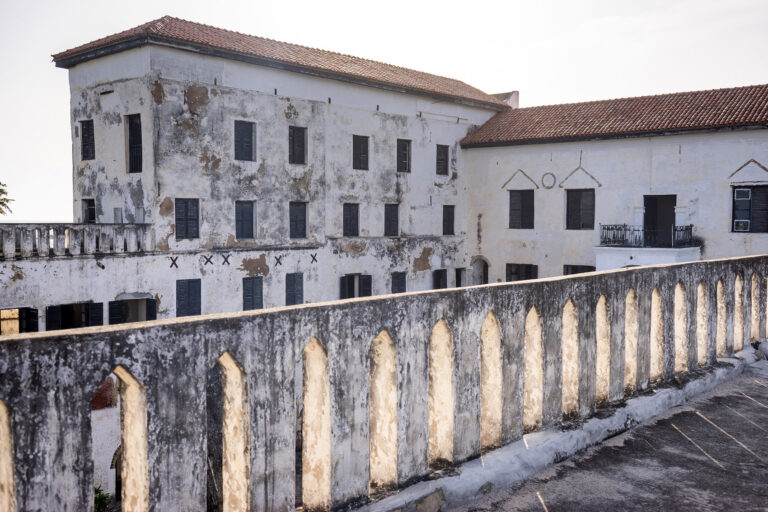The Leather Crafts of Tamale-Zongo
If some dude in the USA says, “Oh yeah, some friends and I get together to cure leather in my back yard”, your instant and one-hundred-percent-accurate reaction is going to be: “Whatever, hipster”. In Ghana, though, there’s nothing hipster about it. We visited the Tamale neighborhood of Zongo, whose DIY leather “factories” would be the dream of so many bored Americans. Here, though, they’re just another way to make a living.
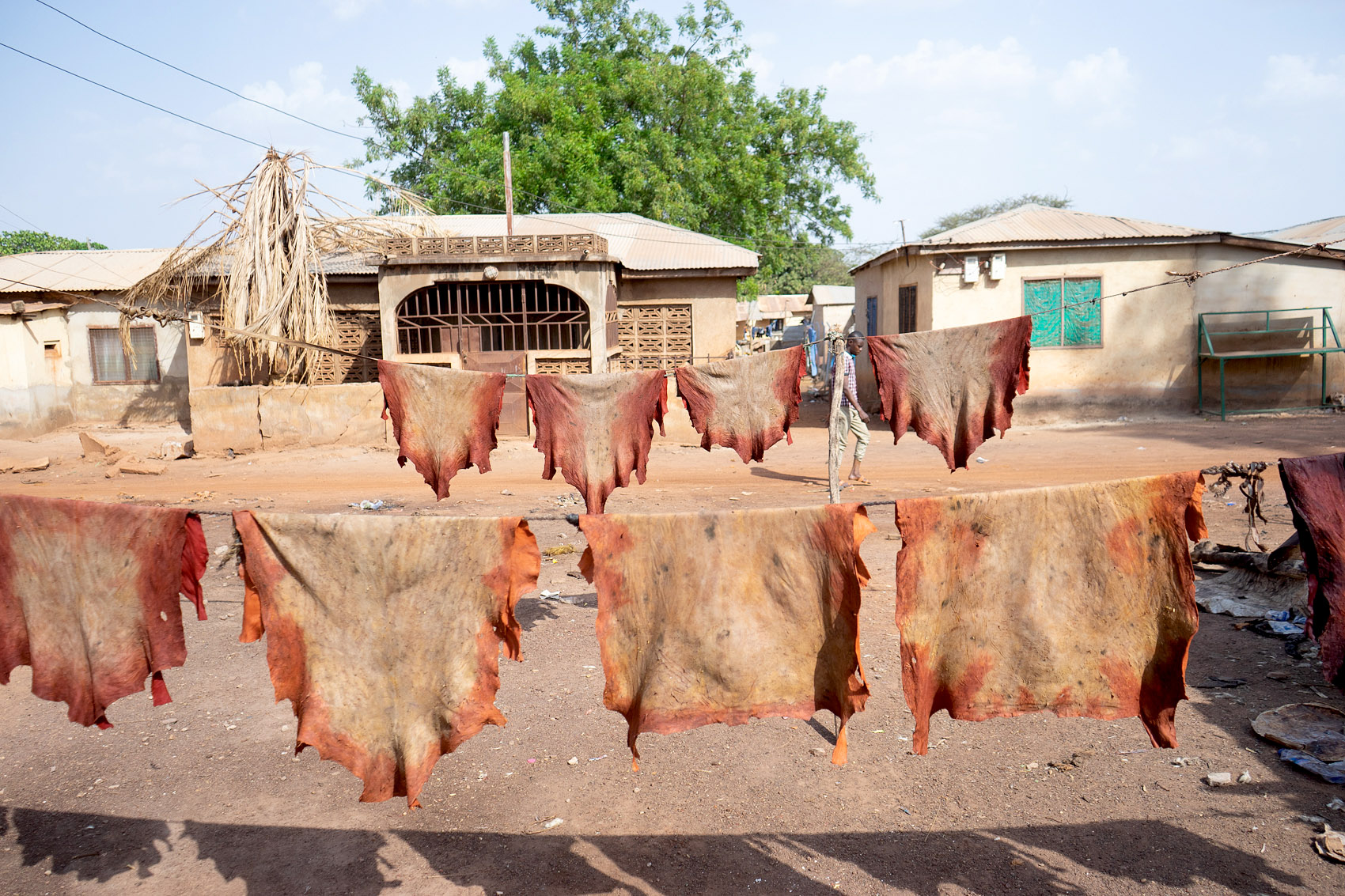
First, a word about the heat of northern Ghana. The temperatures in Tamale are hotter than in the south, and the air is much drier. It’s easy to underestimate, and I hadn’t paid much attention until we walked to Zongo in the middle of the day. After about twenty minutes, I was starting to feel a little weak. Another fifteen searching for a leather place, and I was getting faint. As we paused on a street corner for traffic, my knees buckled, and I realized that I was close to collapse.
We made it to a shop, or house, or living room, I’m not sure still, but at any rate, a kid was on a couch watching wrestling and also selling cold water. I crashed onto a stool, sweating out of every pore on my body, and chugged down two bottles. If the kid was impressed by the sudden appearance of two nearly-dead foreigners in his shop/home, he didn’t show it. Apparently the high-flying antics of Ghana-born Kofi Kingston were a lot more interesting than us. We chilled for about a half hour, until having fully recuperated, then resumed the search for leather.
Although Zongo is known as a leather-making area, finding a leather-making spot is difficult, and eventually we had to enlist the help of a local, who knew right where to lead us. We followed him back up the street we had come down, into an alley, then into a courtyard. We wouldn’t have found this place in a million years, but here it was: one of Zongo’s leather “factories”.
You have to forgive my overuse of scare-quotes, but I feel like they’re necessary. Because this was a leather “factory”. The guys working here were “employees”. We perused the items in the “shop”, which was just a huge bucket of leather-goods dumped out onto the ground.
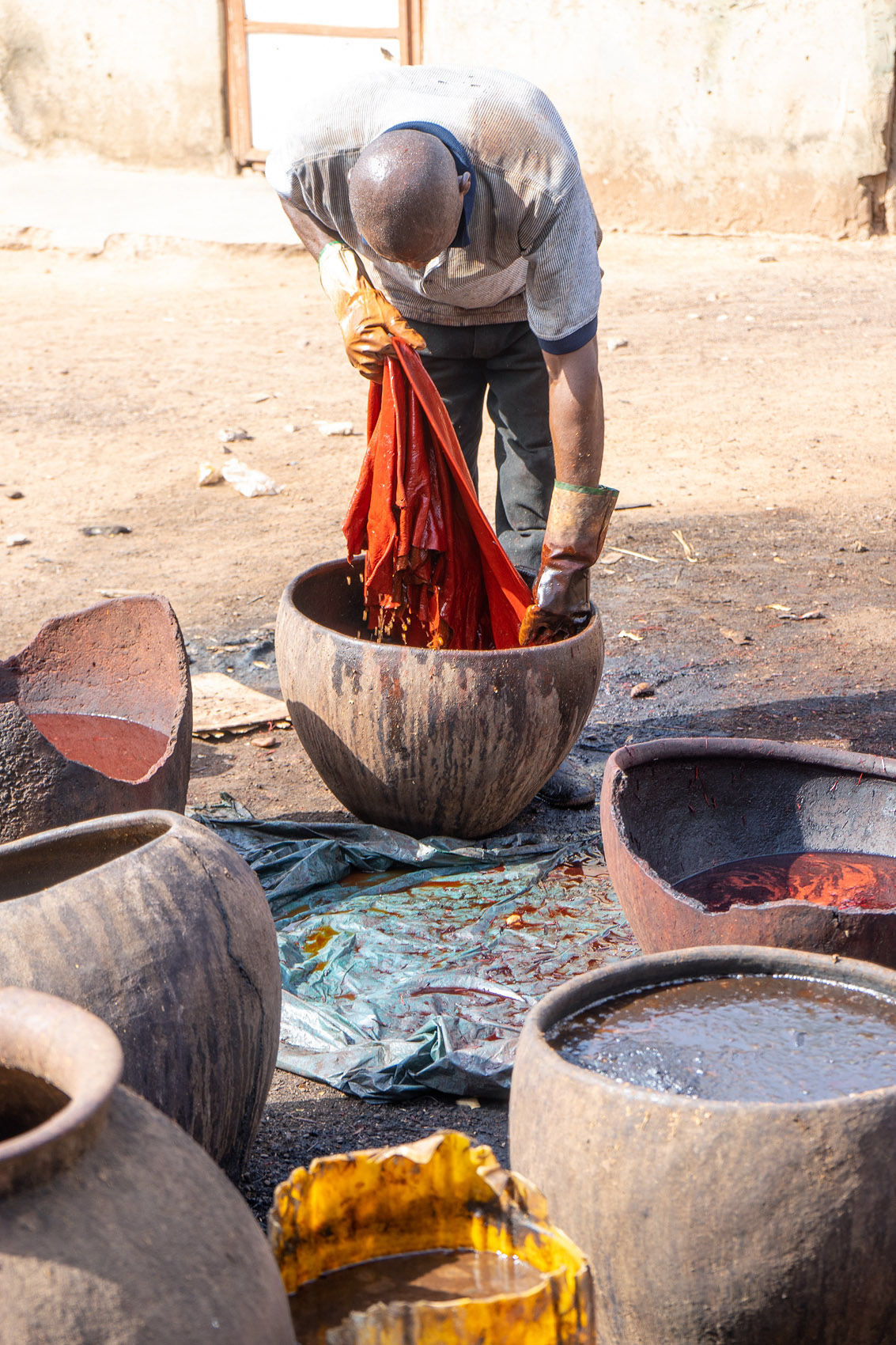
We loved the tour, despite the fact that the stink was serious. This is as organic as it gets. These guys work with skins freshly ripped from slaughtered animals. Like, ten minutes ago. The skins are treated in clay pots of the foulest-smelling concoction of ash and some sort of acidic liquid. After some time in the pot, the fur can easily be scraped off, and the naked skins are then soaked in buckets of plant-based dye, then hung up to dry. As a final step, one of the guys softens them, by pulling them over and over between a rock and his foot.
After the tour had concluded, we lingered under a mango tree in the courtyard, in no hurry to venture back out into the heat. But then we heard the echo of drumming… a sound which was coming definitely nearer. The kid who had led us to the leather shop grabbed our arms excitedly. “The new Dakpema!” Without having any idea what he was talking about, we tried to keep up as he darted back toward the main street. The new Dakpema was coming, and our next Tamale adventure was about to begin…
